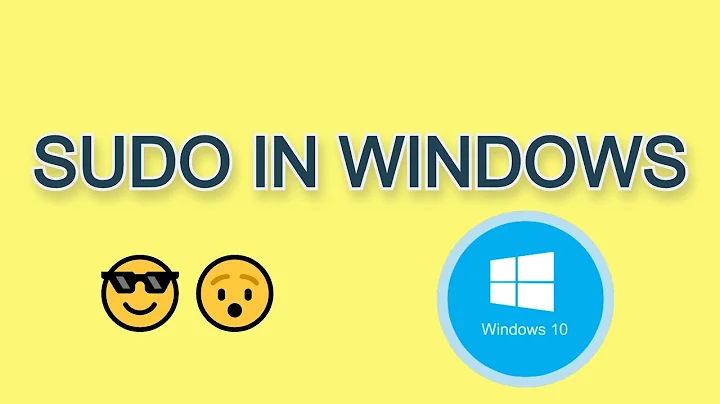Sudo !! equivalent in PowerShell
Solution 1
$^ is a variable that expands to the last executed Powershell command.
You can run a command as another user using runas, so the following works:
runas /user:domain\administrator $^
To shorten that up a bit, you can do some magic with aliases. Take a look at this Technet article for more info.
EDIT: One caveat - $^ only executes the first command in a pipeline or multi-command line. If you need to redo an entire command that is peppered with pipes or semicolons, use Invoke-History instead (which defaults to the last full command in its entirety).
Solution 2
I have always though of JEA (Just Enough Administration) as an attempt to approximate some of the functionality of sudo. You can read about it here:
https://docs.microsoft.com/en-us/powershell/scripting/learn/remoting/jea/overview
Where is differs is that it uses PS remoting rather than applying to the local machine. This may be quite a critical difference, enough to push it too far away from sudo.
Elevating to account for User Account Control, using runas or something else, doesn't really fit well for me. It's more like a parallel of su -.
Related videos on Youtube
BlueGene
Updated on September 18, 2022Comments
-
BlueGene almost 2 years
"Sudo !!" invokes previously executed command with administrator privileges in *nix shell. Is there an equivalent in PowerShell?
-
mivk about 4 years
-
-
Joey about 13 yearsActually,
$^is the first token of the previous command. If I dot-source a script with. ./foo.ps1then$^is.. This also means that arguments are not contained. Doing anything that exceeds a single token will not work this way. -
Developer about 13 yearsok, does it ask for password after that ? I am trying to avoid embedding plaintext password in my script.
-
Hyppy about 13 yearsYes, it does. Unless you run the script as an administrator, you'll need to provide credentials to do anything that requires administrator privileges. You may want to look into something like Kixtart to tokenize an embedded password
-
Martin Brown almost 4 yearsThe link's broken.
-
PollusB almost 3 yearsI totally agree. You can also offer only a short set of commands to the caller.




